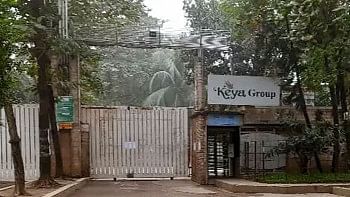A mixed bag for women's football in 2023

The year 2023 was expected to witness Bangladesh women's football progress in an upward trajectory on the back of winning the SAFF Women's Championship in September last year. It was not meant to be, unfortunately.
The year got off to a great start, though, with the national women's football team receiving an unprecedented appreciation from all corners and some financial incentives along the way.
The Bashundhara Group spearheaded proceedings, stepping in to sign a three-year deal worth three crore taka in January to further aid the development of the country's underrated sporting sector. Dhaka Bank also re-established its long-standing relationship with the women in red and green.
Apart from the sponsors boost, women footballers further garnered attention with their on-field show -- winning the SAFF U-20 Women's Championship with an emphatic 3-0 win over Nepal in February before finishing runners-up behind strong Russia in the SAFF U-17 Women's Championship in March.
Following two successful age-group tournaments in Dhaka, everything appeared to be on track till the first quarter of the year. In late March, the momentum tilted slightly as national players skipped training to make their demands felt -- regarding salary bump, better food, sports equipment, and the organisation of international friendly matches, among other things.
Players' protest was a sign of things to come and the situation exacerbated when Bangladesh Football Federation (BFF) on March 29 had decided to withdraw the women's team from the AFC Women's Olympic Qualifiers, just six days before the event began, citing financial constraints.
This prompted widespread criticism of the local game's governing body for failing to send the women's team to a larger stage despite their success in the SAFF Women's Championship.
Chaos amplified and BFF was also embroiled in a tug of war with the Youth and Sports Ministry and the Bangladesh Olympic Association after claiming that the two organisations had failed to respond positively despite their request for financial support to send the team abroad.
The situation worsened when FIFA banned BFF general secretary Abu Nayeem Shohag in the middle of April, but the announcement of the inaugural franchise-based Women's Super League (WSL) brought some relief to booters, starved of competitive action and financial incentives. However, the WSL is yet to see the light of day eight months into the announcement.
Meanwhile, the resignation of long-serving coach Golam Rabbani Choton and the departure of two mainstays -- forward Sirat Jahan Swapna and defender Akhi Khatun -- from the national women's team sent shockwaves.
The loss of the national U-17 women's squad from the second round of AFC U-17 Women's Championship Qualifiers was quite shocking as well, given Bangladesh had previously reached the finals of the AFC U-17 Women's Championship under Choton's guidance.
Restoring momentum to some extent, the third quarter of the year kicked off with promise. After BFF signed a six-month agreement with the national players to increase their salaries, the indomitable bunch eventually had some opportunities to play some international matches as the Asian Games came knocking in September.
It was a learning experience for Sabina Khatun and teammates who suffered heavily against former World Cup champions Japan and World Cup-playing nation Vietnam but drew against Nepal, a side Bangladesh has also drawn two times in international friendlies since their SAFF Women's Championship.
Sabina and Co came full circle to end this year on a high, defeating Singapore 3-0 and 8-0 in two international friendly matches earlier this month in front of a jubilant home crowd.
However, the booters now find themselves in a spot of bother after three-time WFL champions Bashundhara Kings withdrew from the competition's upcoming edition after their players claimed a significant wage increment.


 For all latest news, follow The Daily Star's Google News channel.
For all latest news, follow The Daily Star's Google News channel. 








Comments